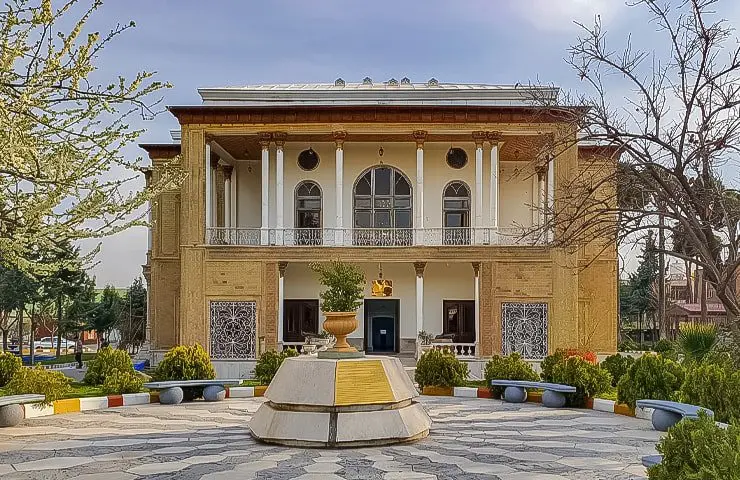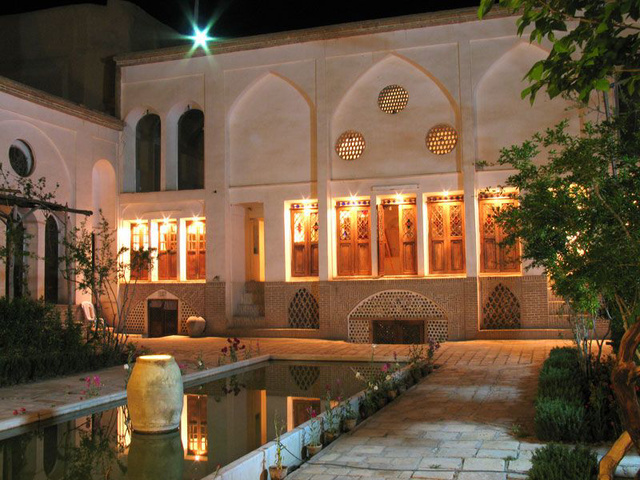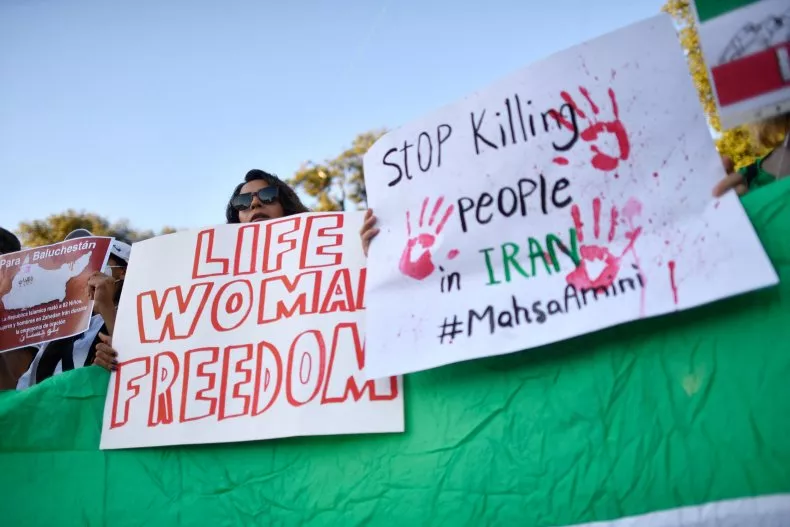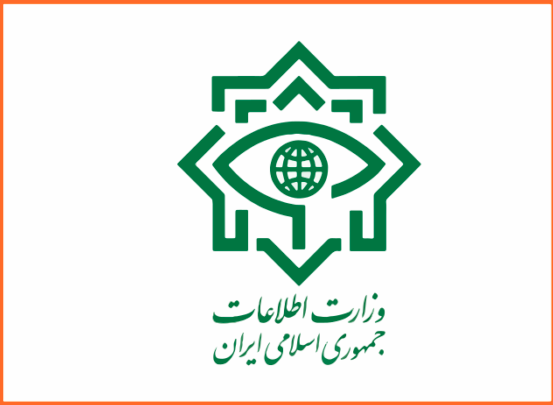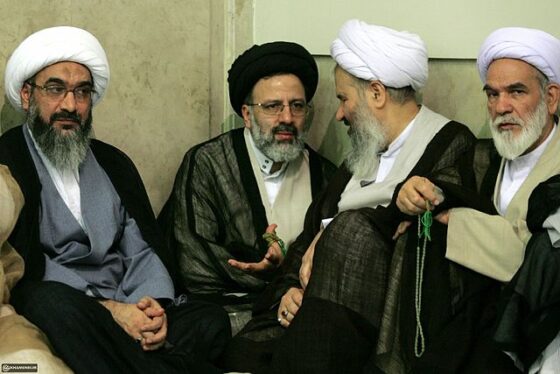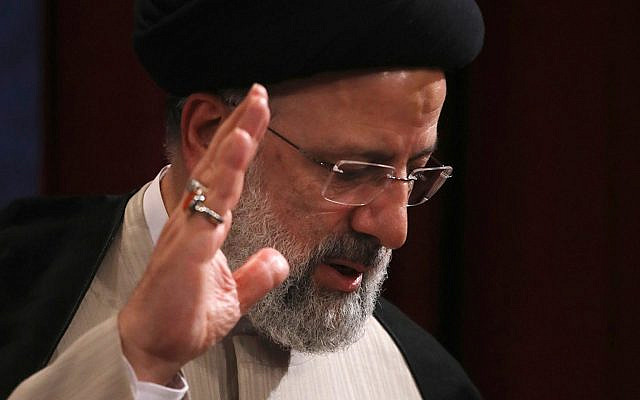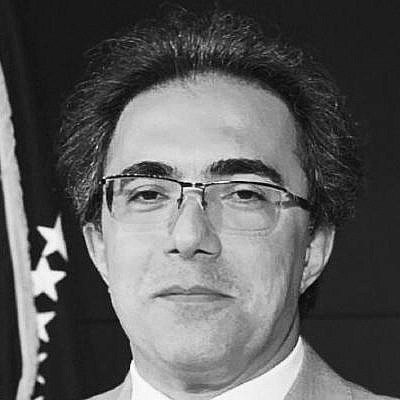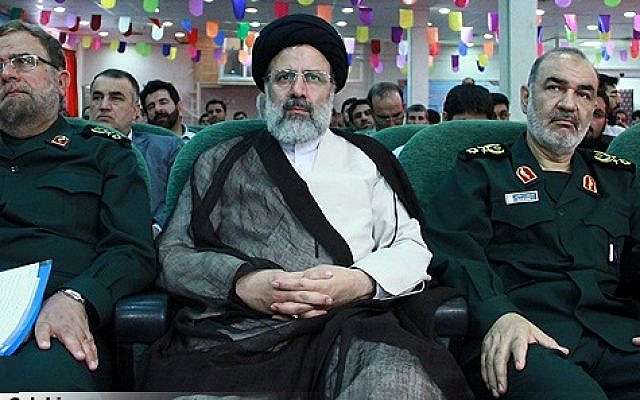Iran rejects UK’s call for ‘Trump deal’ to replace nuclear accord
Published on: 2020-01-15
 Image copyright
Image copyright
EPA
President Hassan Rouhani said European powers needed to abide by their own commitments
Iran’s President Hassan Rouhani has dismissed UK Prime Minister Boris Johnson’s call for a new “Trump deal” to replace the 2015 nuclear agreement.
Mr Johnson said he recognised that Mr Trump saw the accord as “flawed” and suggested he could renegotiate it.
Mr Rouhani warned that “all Trump has done is break promises”.
He also criticised the UK, France and Germany for triggering the nuclear deal’s dispute mechanism after Iran breached key commitments.
President Trump abandoned the nuclear deal in 2018 and reinstated US sanctions on Iran to try to force it to negotiate a new agreement that would place indefinite curbs on its nuclear programme and also halt its development of ballistic missiles.
The five remaining parties to the deal – the European powers plus China and Russia – want to keep it alive. But the sanctions have caused Iran’s oil exports to collapse, the value of its currency to plummet, and sent its inflation rate soaring.
After the Trump administration increased the pressure on Iran in May 2019, the country responded by gradually lifting all limits on its production of enriched uranium, which can be used to make reactor fuel but also nuclear weapons.
Iran announced that the final limit had been lifted earlier this month, days after top Iranian general Qasem Soleimani was killed in a US drone strike in Iraq. Iran’s armed forces also fired ballistic missiles at two Iraqi bases housing US forces in retaliation.
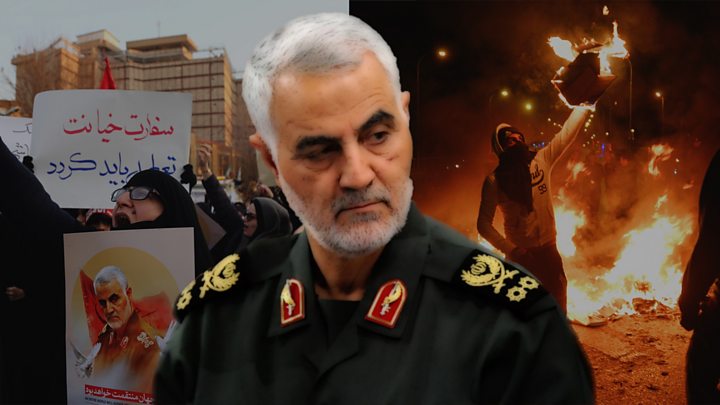
Media playback is unsupported on your device
The 2015 deal saw Iran, which insists that its nuclear programme is exclusively for peaceful purposes, agree to limit its sensitive activities and allow in International Atomic Energy Agency (IAEA) inspectors in return for the lifting of sanctions.
When Iran began lifting restrictions on uranium enrichment, it argued that the accord allowed it to “cease performing its commitments… in whole or in part” in the event of “significant non-performance” by other parties.
Announcing they had triggered the Dispute Recognition Mechanism on Tuesday, France, Germany and the UK warned that Iran’s actions were “inconsistent with the provisions of the nuclear agreement” and had “increasingly severe and non-reversible proliferation implications”.
Image copyright
AFP
Among the steps Iran has taken is to install more advanced uranium enrichment centrifuges
“We do this in good faith with the overarching objective of preserving the [deal] and in the sincere hope of finding a way forward to resolve the impasse through constructive diplomatic dialogue,” they said.
The mechanism involves the dispute being referred to a Joint Commission that will have a minimum of 15 days to resolve the issue. If the complainants are still not satisfied, they can refer the issue to the UN Security Council, which could vote to reimpose any sanctions lifted under the deal.
In a televised speech on Wednesday, Iran’s president criticised the European powers’ decision and their failure to ensure his country enjoyed the economic benefits of the nuclear deal.
“The next step you need to take is to return to your commitments,” he said.
“In recent days I… made it clear to two European leaders that what we have done is reversible for one, and that everything we do regarding the nuclear issue is under the supervision of the IAEA”.
He added: “If you take the wrong step, it will be to your detriment. Choose the right path, which is to return to the [nuclear deal].”
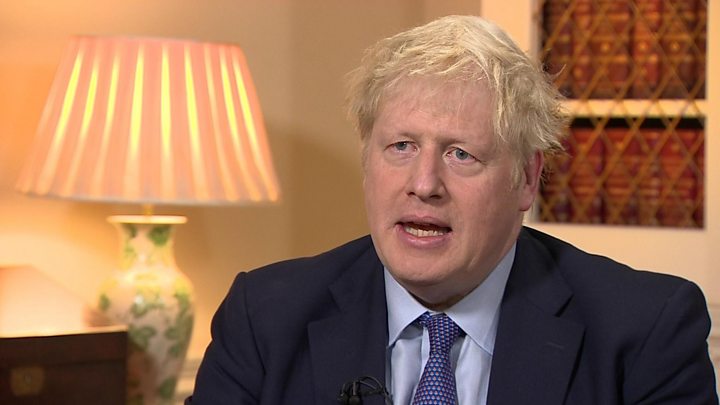
Media playback is unsupported on your device
Mr Rouhani also criticised the UK for talking about replacing the accord.
“I do not know what Mr Prime Minister in London is thinking,” he said. “All Trump has done is break promises and violate laws and international rules.”
Mr Johnson told the BBC on Tuesday that the “crucial thing” about the nuclear deal was that from the American perspective it was “flawed”.
“If we’re going to get rid of it, let’s replace it and let’s replace it with the Trump deal,” he said. “President Trump is a great dealmaker, by his own account and many others. Let’s work together to replace the [agreement] and get the Trump deal.”
The Trump administration has said it is ready to negotiate with “no preconditions”, but Iran has said negotiations are possible only if all US sanctions are lifted.
Iranian Foreign Minister Mohammad Javad Zarif told reporters in the Indian capital Delhi on Wednesday that European powers were allowing themselves to be “bullied” by the US. But he also asserted that the nuclear deal was “not dead”.

